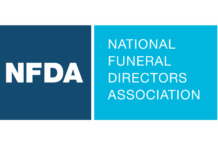By Courtney Gould Miller, Managing Editor of The Leader
Millennials are now the second-largest generation in the U.S. electorate, following Baby Boomers, according to the Pew Research Center.
As millennials age, they are engaging more with the funeral process, whether as a secondary decision-maker for extended family, or even navigating the death of a parent.
At age 33, Devin is considered to be a millennial. The youngest of four children, Devin is married with two children and is a professional development executive at a large law firm.
Because the average age of death has decreased over the past few years to now an average of 71, millennials like Devin are increasingly becoming the primary decision-makers for funeral planning earlier than they ever expected. In addition, because the U.S. population is more transient now than ever, most millennials have little to no experience with funerals or connections to the communities they grew up in. Together, this creates a consumer that has very little expectation of “the way we’ve always done things” which has driven many funeral decisions in the past.
Devin spoke with The Leader and MKJ Marketing, about what it was like planning her father’s funeral arrangements.
Devin describes her father as a storyteller who never met a stranger and was always the life of the party. He was a sailor who grew up on the water and loved teaching his children how to sail.
Shortly after Devin’s father was diagnosed with cancer, her parents moved back to their hometown of Annapolis, MD, because they wanted to seek the best medical treatment.
After her father was discharged from the hospital, he was given a terminal diagnosis, but they thought he still had more time. He stayed at a short-term facility for about a week and was then transferred to a hospice facility, which is when it became clear he was days away from dying.
Devin said her parents had life insurance but had not preplanned their funeral arrangements, so they had to start making decisions quickly.
She and her family started by asking for recommendations from friends and contacts, and received three referrals to locally and family-owned funeral homes. The recommendation they ultimately followed, however, was from the staff at the hospice facility.
“They were really helpful because I have three sisters, my Mom, there were a lot of family dynamics going on, my sister had just had a baby. I don’t live in my hometown anymore, and it was a lot to sort of navigate, and so the hospice facility helping us and giving us those recommendations alleviated some of the stress and pressure of making decisions quickly,” she said.
Devin and her family ended up choosing one of the locations that the hospice facility had a relationship with, primarily because they were closest to the facility. While funeral professionals recognize that the proximity of a facility to a hospice facility should not be a decisive factor, the trust that Devin and her family had with the hospice staff at that point led them to follow the hospice staff’s direction.
“That personal relationship helped us feel better about all of the decisions and things that were happening,” she said.
Before making the decision, Devin called the other funeral homes recommended in the area. She said the process was “a little bit of a mystery” at first.
“I’ve never planned a funeral before. I don’t know how much it costs or what my options are. I don’t know what the terminology is – it’s a little bit intimidating, so I appreciated that it was pretty upfront, but I had a lot of questions about things that we were interested in doing, in terms of the celebration of my dad’s life, and the answers were very black and white – ‘this is what we do, and we don’t do that,’” she said.
While Devin didn’t know all of the answers, she was sure about what her father did not want.
“Church was just not a place he felt at home and at peace. It didn’t feel like something that would honor or celebrate his spirit,” she said.
As we’ll discuss in the second part of this series, you’ll hear that Devin and her family planned a separate religious ceremony just for their family.
Because her father did not want a traditional service, she had many questions about the ways she could customize the memorial to honor her father’s wishes. While some employees were helpful, they made it clear they could only accommodate certain requests.
“It was helpful because I didn’t spend a lot of time there, sort of wasting my time, but it was not helpful because I had to find all of the things that I wanted to be components in his service on my own,” she said.
This is the first part of the Millennial Funeral Planner series. We’ll share more of Devin’s story in the coming weeks.








I just like the helpful info you supply to your articles. I will bookmark your weblog and take a look at again here frequently. I am slightly certain I’ll be told lots of new stuff proper here! Best of luck for the following!
Keep on working, great job!